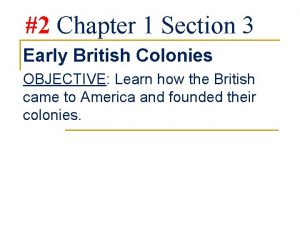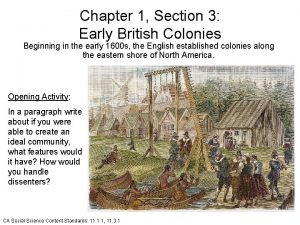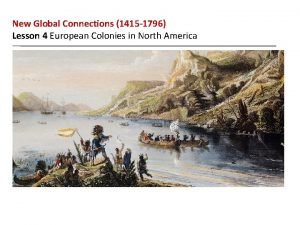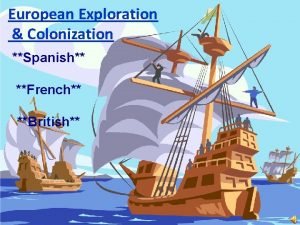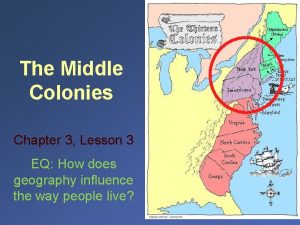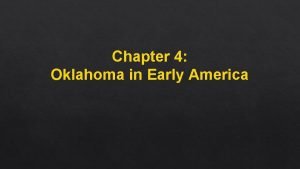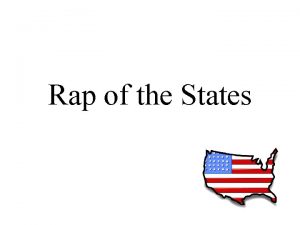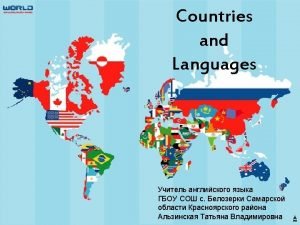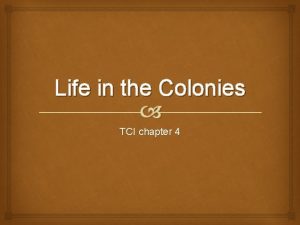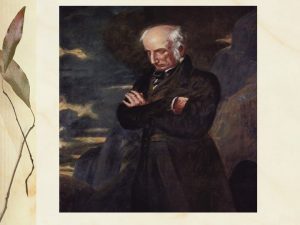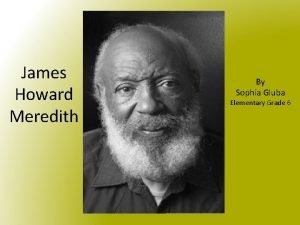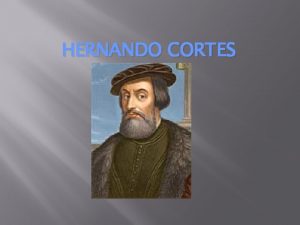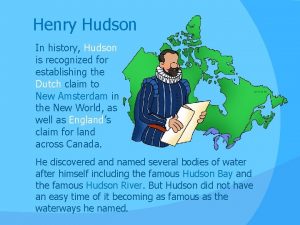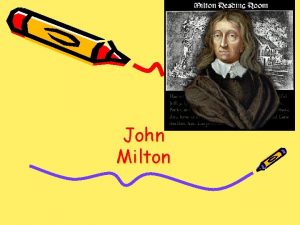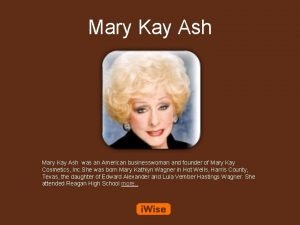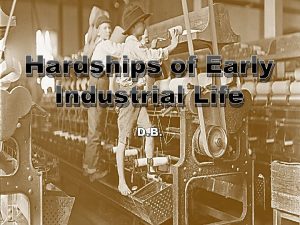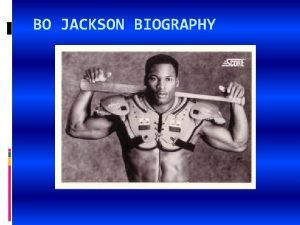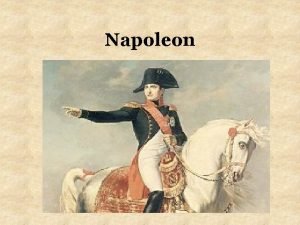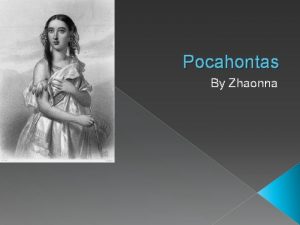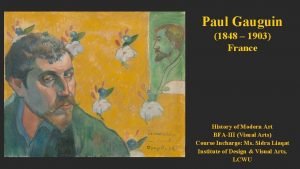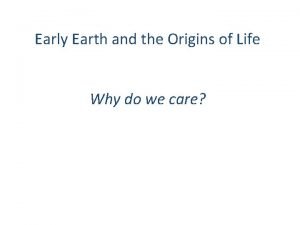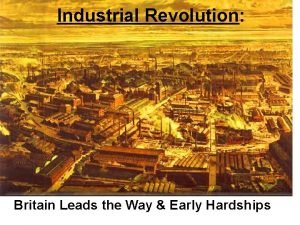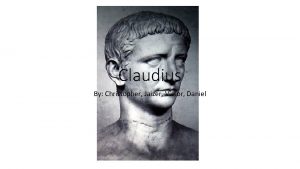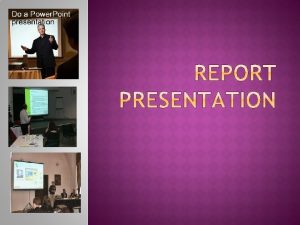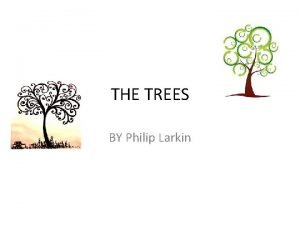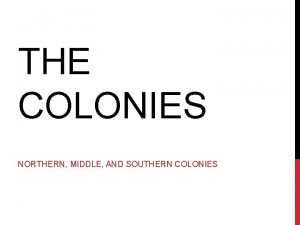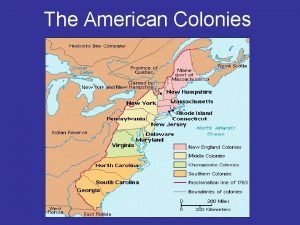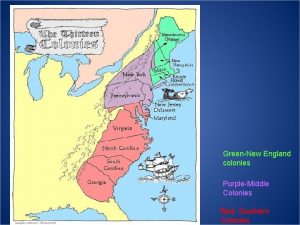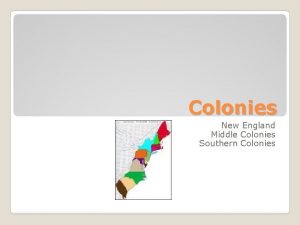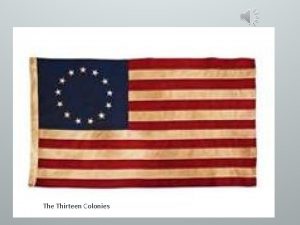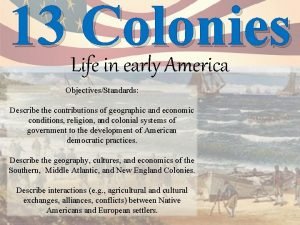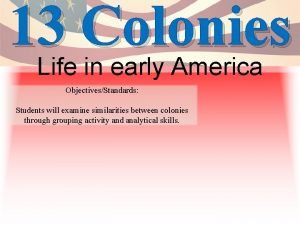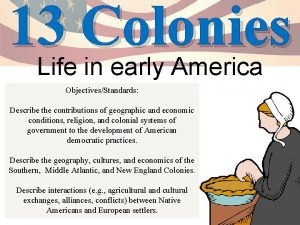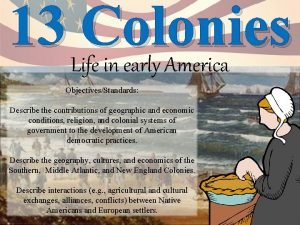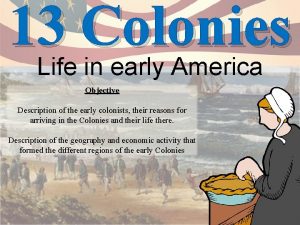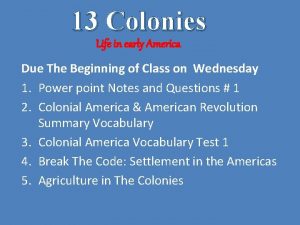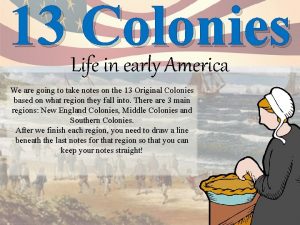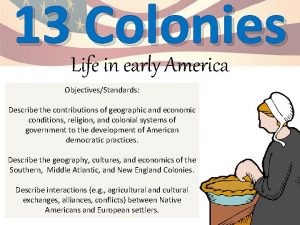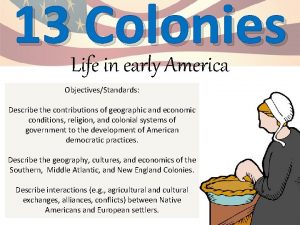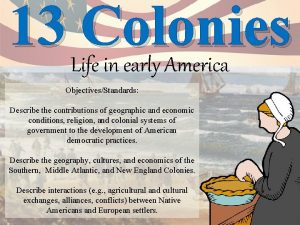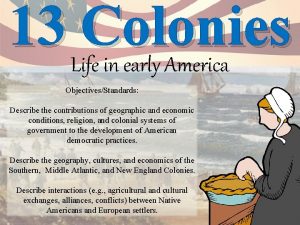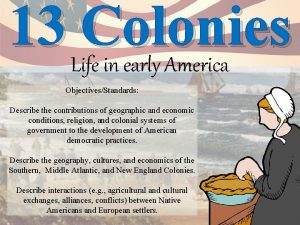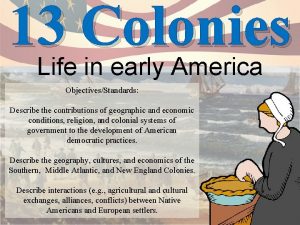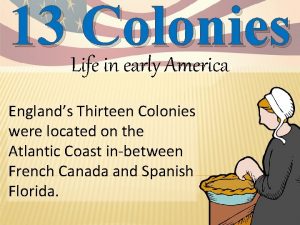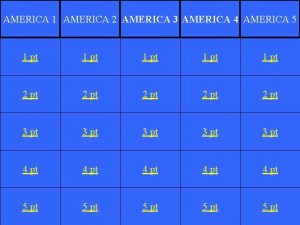13 Colonies Life in early America Coming to

















































- Slides: 49

13 Colonies Life in early America

Coming to America Teacherspayteachers. com Jessica Giuliani

Vocabulary Colony – What is a colony? A settlement in a new area. The first English colonies in North America were along the eastern coast. Colonist – What is a Colonist? An English man or woman that moves to the new world of North America.

Original 13 Colonies

Reasons Why. They Came • Some Englishmen came for religious freedom from the Church of English. • They wanted land wealth that they couldn’t have in England. • They wanted freedom from the King’s rule. • They wanted a new beginning • They want adventure. • They wanted gold and riches.

Other Reasons Why • Self-rule • By 1735 there were over 6 million English men women and children looking to the 13 English Colonies here in North America for a new beginning.

The Colonies Each colony was unique in it’s characteristics. However, they are grouped together based on location, reasons they were founded, and what types of industries they had. New England Colonies Rhode Island Connecticut Massachusetts New Hampshire Middle Colonies Delaware Pennsylvania New York New Jersey Southern Colonies Maryland Virginia North Carolina South Carolina Georgia

New England Colonies

Vocabulary Puritans – Who were they? The Puritans came to New England to escape the King who punished them for their religion. They governed a strict colony that was based around the bible and the church. They had elected officials but they were male. No women could serve in the Puritan government.

The Colonies Each colony was unique in it’s characteristics. However, they are grouped together based on location, reasons they were founded, and what types of industries they had. New England Colonies Rhode Island Connecticut Massachusetts New Hampshire

New England Colonies The settlers here made a great deal of money fur trapping. Other economic opportunities in New England were based around the sea: fishing, shipbuilding, and whaling. The soil was rocky and so the New England Colonies were not known for their farms.

New England Colonies Facts People in New England towns lived, worked, and worshiped close together. The meeting house and the church were the most important buildings in the town.

New England Colonies Facts The Puritans settled in Massachusetts. Because they were so strict some Puritans left Massachusetts and founded the other New England Colonies. The Colonies of New Hampshire, Connecticut, and Rhode Island were friendlier more tolerant of people’s differences.

New England Colonies -Quiz: What religion was in control of Massachusetts? Name three ways in which the colonies in New England made a living? What was the soil like in New England?

New England Colonies -Quiz: What religion was in control of Massachusetts? PURITAN Name three ways in which the colonies in New England made a living? Fur trapping, fishing, and ship building. What was the soil like in New England? Rocky; not good for farming.

New England Colonies By 1750, busy cities cropped up around the New England colonies. Boston became world famous for its shipping port.

New England Colonies School One room One teacher Very strict, children were often whipped for punishment The main subject was reading

Middle Colonies

The Colonies Each colony was unique in it’s characteristics. However, they are grouped together based on location, reasons they were founded, and what types of industries they had. Middle Colonies Delaware Pennsylvania New York New Jersey

Vocabulary The Breadbasket Colonies A Nickname for the Middle Colonies because they produced so much grain: Oats, wheat, rye.

Vocabulary Immigrant– What is an immigrant? A person that comes into a country to start a new life. People came to America from many different places to start a new life. Diversity– What is diversity? A group of people from very different backgrounds. The Middle colonies were an interesting place to live because of the diversity among the people.

Middle Colonies The settlements here were considered a Royal Colonies. The King sent governors here to watch over the Middle Colonies. However it was difficult for the King to have much power over the colonies and many colonies were considered to be self-ruled.

Middle Colonies Economy -The Middle Colonies were based on agriculture; small farms that produced many different crops. -There were also factories that produced iron.

Middle Colonies Facts -Sometimes called the “The Bread Basket” colonies because they grew so many crops for making bread. -The land was lush and fertile. - The wagon was invented in Pennsylvania and used for trade.

Middle Colonies -Quiz: what crops grew in the Middle Colonies? Name three. -What was the soil like? -Name the four Colonies in the Middle?

Middle Colonies -Quiz: what crops grew in the Middle Colonies? Name three. Oats, wheat, and rye -What was the soil like? Lush; great for farming -Name the four Colonies in the Middle? Delaware, Pennsylvania, New York, New Jersey

Middle Colonies The Quakers -This religion was a big part of life in the Middle Colonies. Although other religions were welcome, the Quakers came to Pennsylvania to escape persecution by the King of England. -Lived in New Jersey, New York, Pennsylvania

Southern Colonies

The Colonies Each colony was unique in it’s characteristics. However, they are grouped together based on location, reasons they were founded, and what types of industries they had. Southern Colonies Maryland Virginia North Carolina South Carolina Georgia

Southern Colonies The settlers here, for the most part, wanted to make money. They brought their families and the slaves worked the land. Many settlers here were rich and owned large plantations. A Plantation grows only one type of crop. Very different from the farms of the Middle Colonies.

Southern Colonies Economy -almost entirely agricultural -plantations were abundant -a large part of the workforce was African slaves -plantations grew tobacco, rice, and indigo

Southern Colonies Facts -Slavery was legal -Children born to slaves became slaves themselves -Slaves were imported from Africa. -Slave traders made a great deal of money.

Colonial Life…

Facts About School • Boys normally went to grammar schools while girls went to dame school. • There were no chalkboards, maps, or paper. • School teachers were strict and were allowed to hit their students or make them wear a dunce hat if they were bad or said the wrong answer.

Other Facts About School In the New England colonies, children were taught to read so they could study the Bible. Boys got to also learn Latin and Math and other subjects to get into college. Girls could learn to read, but they weren't allowed to go to grammar school or to college. In the Middle Colonies, most schools were private. Students also learned other subjects so they could get into college. Girls weren't allowed to attend (unless they were Quakers). In the Southern Colonies, children were mostly taught at home. As in the other colonies, Southern girls did not go to higher schooling.

Free Time Make new clothes Sleigh Rides & Ice Skate Dances & Social Clubs Barn Raising (was a social event!) Plays

Jamestown • Founded in 1607 • Founded in Virginia • Names after King George • First successful English settlement (not the first European one though) • Extremely high death rate in early years

Jamestown • Extremely high death rate: – Within weeks of landing, the settlers were attacked by Indians. They didn’t even have a chance to unpack their muskets. They had to return fire from their ships. – They didn’t venture outside of their fort for fear of Indian attacks, so they began to starve. – They may have been slowly poisoned by their own drinking water. The well they used accessed salty water that has levels of arsenic. – Diseases ran rampant

Jamestown “Our men were destroyed with cruel diseases as swellings, fluxes, burning fevers, and by wars, and some departed suddenly, but for the most part they died of meer famine. There were never Englishman left in a foreign country in such misery as we were in this new discovered Virginia. ” –George Percy, survivor • Of the 104 men and boys who landed in America in 1607, only 38 were alive by January of 1608.

Captain John Smith

Captain John Smith

Captain John Smith

Captain John Smith • Took over the presidency of the colonial council after most of the councilors were dead or incapacitated. • Opened up trade negotiations with the Indians. • Didn’t marry Pocahontas • Was injured and sailed back to England

• After John Smith left, trade relations with the Indians went bad • The colonists began having food supply issues again. • This was known as “The Starving Time” – 154 of the 214 colonists died

Fortunes Change • John Rolfe planted a new crop he had taken from Bermuda—TOBACCO • It did well in Virginia and soon became very profitable.

John Rolfe • Totally married Pocahontas. • Helped change the fortune of the settlers by planting tobacco.

Conflict in the Colonies As colonists settled and spread across New England, they entered land that was already lived on by Native Americans.

Conflict in the Colonies The Native Americans and colonists began attacking each other’s villages. They had very different ideas about owning land. Natives believed no one could own land while colonists believed you could own it if you claim it. Arguments began to lead to war resulting in lives lost. Some tribes were nearly completely wiped out because the English settlers had many advanced weapons.

 Chapter 1 section 3 early british colonies
Chapter 1 section 3 early british colonies Chapter 1 section 3 early british colonies
Chapter 1 section 3 early british colonies European colonies in north america
European colonies in north america European colonies in north america
European colonies in north america Lesson 3 the middle colonies answer key
Lesson 3 the middle colonies answer key Early cpr and early defibrillation can: *
Early cpr and early defibrillation can: * Chapter 4 oklahoma in early america
Chapter 4 oklahoma in early america We can do a rap of the map of the us
We can do a rap of the map of the us Europe asia north america south america
Europe asia north america south america Repetition in let america be america again
Repetition in let america be america again Why is it called latin america
Why is it called latin america Happening e performance
Happening e performance Tci life in the colonies
Tci life in the colonies William wordsworth education
William wordsworth education Steve jobs timeline of his life
Steve jobs timeline of his life Shel silverstein early life
Shel silverstein early life Roald dahl early life
Roald dahl early life Lois lowry website
Lois lowry website James howard meredith
James howard meredith Newton childhood
Newton childhood Hernando cortes early life
Hernando cortes early life Henry hudson
Henry hudson Early life of frida kahlo
Early life of frida kahlo Emily dickinson father
Emily dickinson father Karl marx early life
Karl marx early life John milton early life
John milton early life Tehzeeb ul akhlaq
Tehzeeb ul akhlaq Le gourmet painting
Le gourmet painting Early life
Early life What is mary kay ash famous for
What is mary kay ash famous for Négritude définition
Négritude définition Swan and saenz
Swan and saenz Hardships of early industrial life
Hardships of early industrial life Early life
Early life Bo jackson address
Bo jackson address Where was marco polo born and raised
Where was marco polo born and raised Napoleon early life
Napoleon early life Chinua achebe childhood
Chinua achebe childhood Pocahontas hobbies
Pocahontas hobbies Paul gauguin early life
Paul gauguin early life Origins
Origins Portia white cause of death
Portia white cause of death Hardships of early industrial life
Hardships of early industrial life Mark dean early life
Mark dean early life Claudius early life
Claudius early life Enotes the crucible
Enotes the crucible Emily dickinson early life
Emily dickinson early life Coming down the pike
Coming down the pike Thank you ladies and gentlemen
Thank you ladies and gentlemen The trees are coming into leaf
The trees are coming into leaf
